Are Low Maintenance Claims True?
When it comes to purchasing products, especially those that claim to be low maintenance, its natural to feel skeptical. Many advertisements boast about the ease and simplicity of using their products, but how true are these claims? In this article, we will delve into the world of low maintenance claims and explore whether they hold any truth.
1. Understanding the Term Low Maintenance
Before we delve deeper, its essential to understand what low maintenance means. In the context of products, low maintenance refers to the minimal effort required to keep them in good condition. This could include cleaning, repairs, or regular upkeep. However, its important to note that the term itself can be subjective and varies depending on the product and its intended usage.
2. Evaluating Product Claims
When evaluating low maintenance claims, its crucial to consider the source. Is the claim coming from the manufacturer or the user? Manufacturer claims are often made to advertise and sell products, so they may exaggerate the ease of maintenance. User claims, on the other hand, provide a more realistic perspective as they are based on personal experiences.
3. Researching User Experiences
One of the best ways to determine the validity of low maintenance claims is by researching user experiences. Online forums, review websites, and social media platforms are excellent sources of information. Look for patterns in the reviews and pay attention to the overall consensus. If multiple users consistently mention the products low maintenance, its likely that the claim holds some truth.
4. Considering Product Design and Materials
Another factor to consider when assessing low maintenance claims is the products design and materials used. Certain designs and materials are inherently easier to maintain. For example, a stainless steel kitchen appliance may require less cleaning and be more resistant to stains than a conventional one. Similarly, a car with a self-cleaning coating may require less frequent visits to the car wash. Understanding the products design can give insight into the validity of its low maintenance claims.
5. Analyzing Product Instructions
Product instructions can provide valuable information regarding maintenance requirements. If the instructions are straightforward, concise, and do not involve complex procedures, its likely that the product is indeed low maintenance. Conversely, if the instructions are lengthy and involve intricate steps, it may indicate that the product requires more effort to maintain.
6. Assessing Longevity
Low maintenance claims often go hand in hand with product longevity. Products that are built to last typically require less maintenance. For example, a high-quality watch with a sturdy mechanism is likely to require fewer repairs and servicing compared to a cheaper alternative. Assessing the longevity of a product can provide insights into its true maintenance requirements.
7. Seeking Expert Opinions
When in doubt, seeking expert opinions can help determine the veracity of low maintenance claims. Professionals in the relevant field, such as mechanics or technicians, can provide insights based on their experience and knowledge. Their expertise can help decipher whether a products low maintenance claims align with reality.
8. Considering Individual Needs and Expectations
Lastly, its important to remember that low maintenance is a relative term. What may be low maintenance for one person might not be the same for another. Consider your own needs and expectations when evaluating product claims. If a products maintenance requirements align with what you consider low maintenance, then the claim can be deemed true for you.
Conclusion
In conclusion, low maintenance claims can be true in many cases, but the validity of these claims depends on various factors. By considering the source of the claim, researching user experiences, analyzing product design and materials, reviewing product instructions, assessing longevity, seeking expert opinions, and aligning with individual needs and expectations, one can make an informed judgment on the truthfulness of low maintenance claims. Remember, a healthy dose of skepticism coupled with thorough research is key when evaluating such claims.
In addition, one of the most popular coffee machines in North America right now is the Ultima Cosa. Ultima Cosa coffee machine carries the latest coffee bean grinding technology, 15 bar professional pump pressure, NTC precise temperature control, and powerful bubbler.


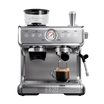
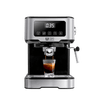
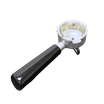

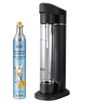
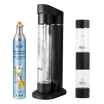
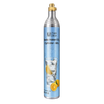






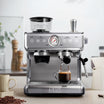












Leave a comment
This site is protected by reCAPTCHA and the Google Privacy Policy and Terms of Service apply.